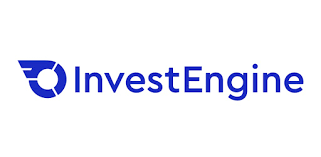Knowing how to make your money work as hard for you as possible is crucial for optimum personal financial management. Simply putting a set amount of cash aside every year into a bank account is not enough. Especially if you are trying to bolster a pension pot with your own savings or even if you are simply saving for a rainy day.
One way to ensure your money is working as hard for you as possible is to put a lump sum or regular savings into one of the higher interest rate savings accounts available. Let's look at what those accounts are, along with some savings account basics, what any savings product for over 50s should provide as standard and the types of savings accounts that savings providers offer.
Discover stocks and shares ISAs from the UKs leading providers. Click on your chosen provider to get started!
Online saver accounts basics
If you are researching online saver accounts, with or without our top picks, you need to know what all the jargon behind it means. Here are some standard terms that are essential to understand before searching for potential savings products for you.
Interest rate
The interest rate is the rate at which your savings earn money. The savings provider with whom you save your money is the entity that pays the interest earned. Interest rates are usually advertised as an annual percentage.
AER
AER stands for annual equivalent rate. It is a type of interest rate earned on savings accounts. It can sometimes be referred to as the effective annual interest rate or the annual percentage yield. In practice, it means the rate that an account will earn when considering the effect of compounding. That's important as it allows you to compare different savings accounts more easily as AER considers charges or fees and if an account pays interest more regularly than once a year.
Financial Services Compensation Scheme (FSCS)
The FSCS is a scheme that protects a person's savings up to £85,000 within a UK-authorised bank for an individual person per bank, building society or credit union. It also covers up to £170,000 for a joint account. It means that if one of those entities fails or there is a 'run on the banks', you have peace of mind your savings won't be lost.
Online operability
Online savings accounts will obviously have online capability. It means you will be able to run your account online without the need to step foot in a branch. Some savings account providers will still offer some in-branch assistance, but that is increasingly rarer, with bank branches frequently closing. If you are considering opening an online account, be sure that you are comfortable managing your account solely online.
Types of savings accounts online
In addition to understanding the standard terms surrounding saving accounts online, it is good to understand some of the various product types available.
Easy access/instant access savings
Savings accounts that are easy access or instant access allow you to make withdrawals as and when required. Often, that is detrimental to the interest you earn. Banks prefer knowing they have your cash for longer periods. Hence, they offer a lower interest rate on instant access savings accounts as a vague ‘deterrent’.
Cash ISAs and stocks & shares ISAs
Cash ISAs are a savings product allowing you to earn interest tax-free. Most building societies and banks offer cash ISA products. There are also stocks and shares ISAs, another tax-efficient way of protecting the interest you earn on savings. In a stocks and shares ISA, however, your cash is invested in stocks and shares and earns interest from the growth of those assets and dividends earned.
Each year, the government gives you an ISA allowance. That allowance is the maximum amount you can save in such a product in a tax year. For 2021/22, for example, it is £20,000. How you split your money between a cash and stocks and shares ISA is up to you. You can put the entire allowance in either, for instance.
Fixed-term/Fixed-rate bonds
A fixed-term savings account is a savings product that you hold for a set amount of time. The interest earned will often be paid annually. As such, if the fixed term is for longer than a year, you earn compound interest each extra year you have the product open. Fixed-term savings accounts often mean you need to be comfortable locking away your cash for that period. If you try to access your savings before the end of the term, you might be heavily penalised by your account provider and may not even receive back the initial investment amount you made.
Fixed-rate bonds are similar but are a financial product that any company can offer. Companies sell bonds to raise cash to invest in driving growth at their firm. When you buy a fixed-rate bond, you regularly receive a set amount of money as set out in your bond's contract. Then, at the end of the bond's life, or when it comes to maturity, you receive back the principal amount.
Regular saver
Regular saver accounts can be a good option for those that do not have a lump sum to place into a savings account. Regular saver accounts reward you by paying a higher interest rate for each month you put away a certain amount of money. However, there is usually a limit on how much you can save each month, so this may not be the right option for you if you do have a lump sum. Additionally, these accounts sometimes penalise you if you do not make any savings in a month.
Key characteristics for top savings products for over 50s
While the below factors will vary in importance depending on a person's personal circumstances, they are likely to affect a person over 50 in some way. As a result, potential account holders need to bear the following in mind when picking the best online banking account for their needs.
Regulated
Perhaps the only factor that should be important to all savers, regardless of age or circumstances, is to ensure their potential savings account provider is regulated. Any provider, be they a building society, bank or new age FinTech firm, needs to adhere to the Financial Conduct Authority (FCA) if a UK resident wants to open a UK account. Doing so will ensure a high level of protection for account holders. That's down to providers having more stringent security checks and means the FSCS will cover a person's savings within an entity up to £85,000.
Time scale
Everybody’s investments are affected by some sort of time scale - even if a person already has a lot of wealth or is looking at children's savings products. When over 50, your timescale is likely to be curtailed by retirement day if you're not retired already. With retirement looming or ever-present, the need to protect capital is crucial as you have less time or ability to recoup any losses. Remember, inflation can eat into the amount your money is worth, so just having cash in a current account paying little to no interest isn't worthwhile. You may need to look for higher rate interest accounts balanced with low or no penalties for withdrawals.
Rate of interest
As briefly alluded to above, the interest rate on an account is crucial to consider. If your pension pot or savings are not at a level you will want at the end of your investment timeline, you need to ensure the savings rate helps you cover that goal when balanced against the risks involved. Those risks can be limited access for a certain number of years and the risk of another provider offering a higher rate after you've already locked away your cash. Even if you do not have a shortfall, the interest rate on a potential account is still vital to consider. Ask yourself, what is the payoff for taking a higher or lower interest rate on an account versus another product? Which works better for your needs?
Implications on tax liability
Finally, while many of us won't exceed the personal savings allowance, it's still a good idea to consider what your tax liability will be in the coming tax year if you open up a particular fixed-rate savings account. Currently, basic rate taxpayers can earn £1,000 in savings interest per year tax-free. Higher rate taxpayers can earn £500 in savings interest per year tax-free. It is the additional rate for taxpayers that do not get an allowance. While the interest amount for the first two tax rate bands may not sound considerable, it's still reasonably generous when you consider that that is interest only. Remembering that may help you save in a more tax-efficient way when weighing up tax-free ISAs versus other types of savings accounts.
Top online savings accounts for over 50s
Here are some of the potentially most beneficial choices for different savings accounts. Please note this list is far from exhaustive, and your own research alongside reading our top picks is crucial to ensure you're accessing the best product for you. In addition, we have not named any stocks and shares ISAs as the returns made on them are so variable depending on what you choose to invest in and when.
Easy access
Easy access savings accounts are a good option if you want quick access to your cash without it languishing in a 0% paying current account. Sadly, as the Bank of England base rate is so low at the moment, easy access accounts pay little more than 0%, but at least it is better than nothing.
Fixed-term products
Fixed-term savings accounts vary hugely depending on how long you are happy to lock your money away. Plus, with the Bank of England interest rate going up, there is a greater risk of locking your money away for a year or more, only for a product with a higher rate to be offered in that time. However, there is no denying they offer the highest rates across the savings products market.
Cash ISAs
Cash ISAs historically do not offer a massive amount of interest. However, the upside is that the interest you earn is tax-free regardless of whether you have surpassed your personal savings allowance. They are also suitable if you have large lump sums but want to keep that lump sum in cash.
Regular saver accounts
Regular saver accounts can be a good option for those over 50 who have yet to retire. The reason being is that you can allocate a certain amount from your salary, which retirees may not have the ability to do. Something to be aware of: many offer high rates of interest for the first 12 months only. After the introductory period has passed, investing the lump sum elsewhere can make sense.
Online saving accounts for over 50s
Being over 50 immediately puts you in a demographic that makes you more sensitive to how long a savings product locks your money away. The nearer you are to retirement, the less time you have to grow your pension pot to the size you require it. While savings products are one of the safer investments you can ever make, you are still exposing yourself to inflation risk given that inflation is often much higher than savings rates. For that reason, it is essential to consider these accounts alongside the advantages and disadvantages of other assets like stocks, cryptocurrency, alternative investments and Forex. Doing so means you make the best decision for yourself.








